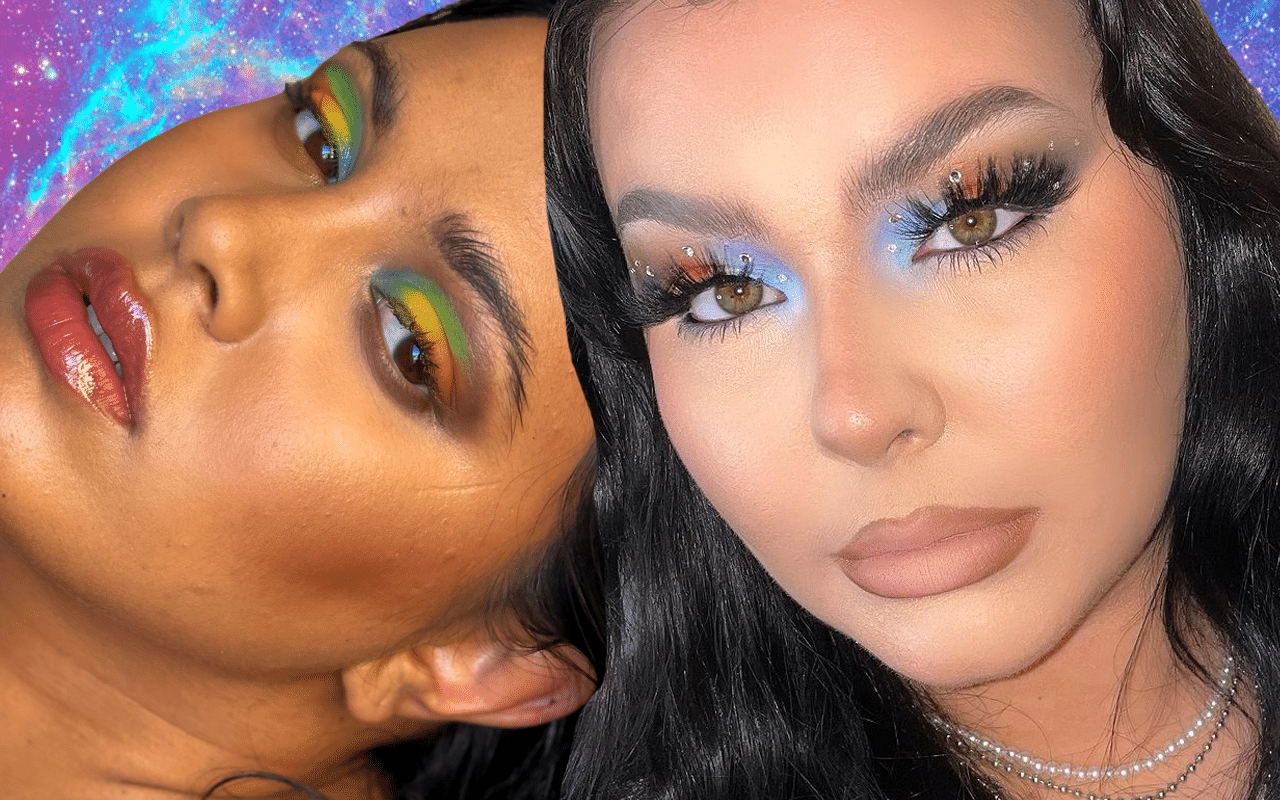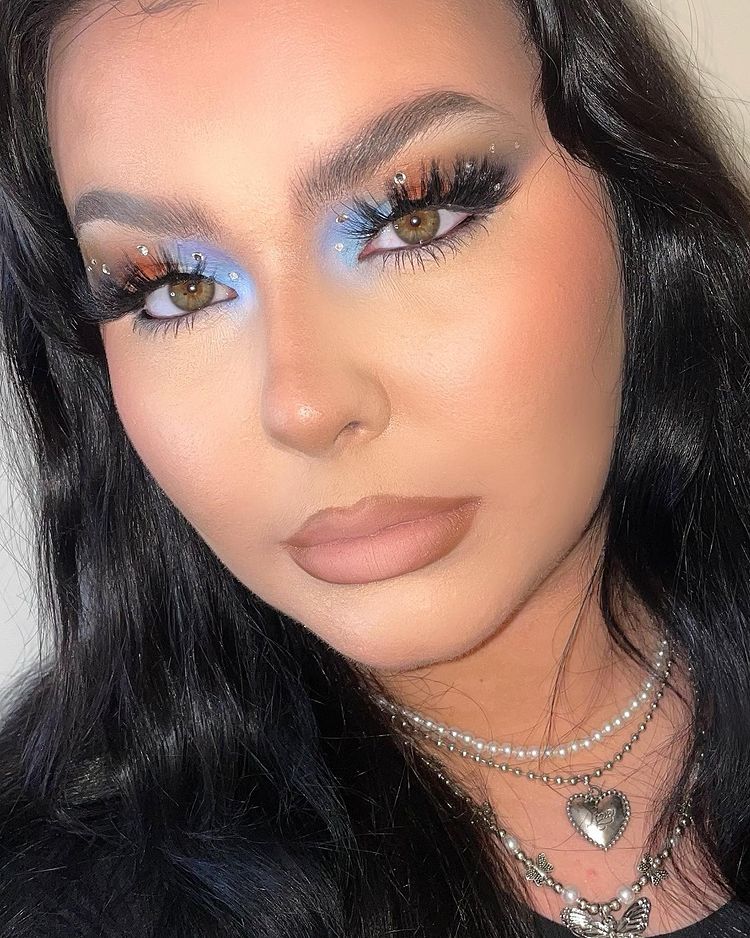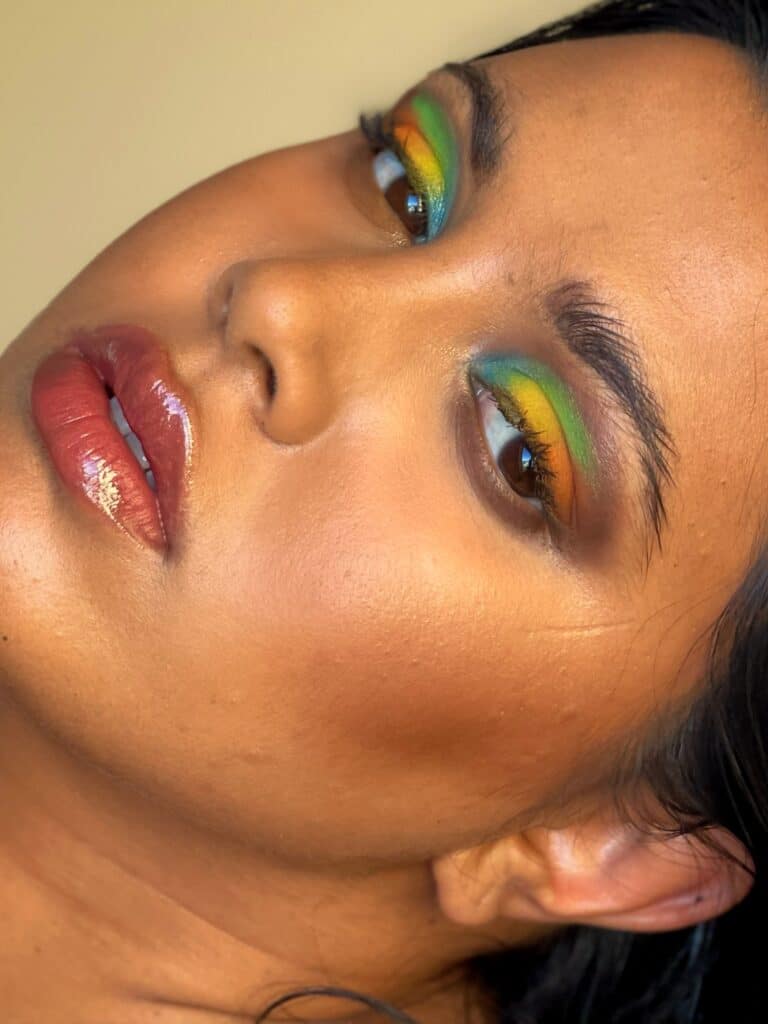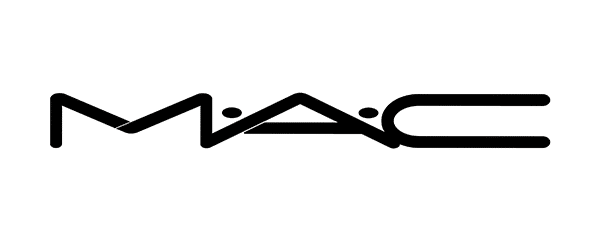
Faces of Australia is a column highlighting BIPOC creatives to bring you their stories. Creators are asked to collaborate on a makeup look that empowers, holds meaning, or describes their experience as it relates to Australian beauty standards and the Australian beauty industry. Faces of Australia is written and produced by Ruchi Page, with a mission to show the beauty industry how accessible BIPOC talent is across this diverse nation.
Introducing makeup artist and content creator, Rosie Kalina. Our collaborative makeup look represents our home, Australia. The colours chosen reflect both the simplicity and intricate beauty of our country. We both used MAC Cosmetics Studio Fix Fluid Foundation to create a luminous base— a product that offered both of us the easiest colour match in our experience with makeup. This makeup look is a particularly meaningful reflection of Rosie’s identity as a proud Indigenous woman.
I started by asking Rosie what it is that she is most passionate about. She tells me she is passionate about self-expression and acceptance— two things I knew to be true from the moment I came across Rosie’s Instagram. Not only was I enamoured by her artistry, but her commitment to calling out racism on her platform was inspiring to say the least. I asked Rosie how she culturally identifies. “I am a proud Indigenous woman, I also have Italian, Chinese and English ancestral lines, however, I identify strongly as a Wemba Wemba and Gunditjmara woman, as I was raised by my Koori mum, family, and community,” she tells me. Rosie explains that “being Aboriginal isn’t defined by skin tone or blood quantum, it’s about ancestry, lived experience, and who claims you”. In full transparency, speaking with Rosie meant that I was all eyes and ears when learning about her experiences. The BIPOC community can share similar experiences, but it is important to remember that all experiences are unique to the person. We agreed that listening and reading about BIPOC lived experiences is valuable for combatting ignorance and sustaining ally-ship.
As Rosie opened up to me, she shared that she is a neuro-divergent person. I asked if she felt comfortable elaborating. “I have ADHD & BPD, and while I don’t believe they define me, they are very much a part of who I am and how I navigate life,” she says. “I am passionate about talking openly about this because there is so much stigma and misunderstanding around mental conditions. I refuse to feel shame, and rather embrace who I am with pride.”

Shame can sometimes be a relatable feeling amongst the BIPOC community. Personally, I struggled to accept my skin colour and features growing up because of how society praises white skin. However, what I noticed about Rosie is her seemingly natural pride. I asked Rosie, as a proud Wemba Wemba and Gunditjmara woman, what does it take to establish that pride when oppression has guided so much of her journey here in Australia? “I’ve always been proud of my culture, however, it didn’t always feel safe for me to express my pride out loud. I had teachers and peers say racist things to me growing up, and many attempting to erase my identity,” she answers. The racist experiences Rosie faced were used as fuel. “This was a reminder that this nation was built on the oppression and erasure of us First Nations people,” she says. “To show my pride loudly is resistance!”
Defiance is one way Rosie sourced pride but she tells me it also “comes from love; for my family, my community and my ancestors”. She continues to say that “whenever I’m feeling the brunt of anti-Aboriginal racism, I remind myself that we are the oldest continuing culture in the world, that my ancestors go back 60,000+ years right here, and that’s something they can never take away from us”.
Now for the Instagram Reel that sparked this interview. Rosie made a reel to the ‘Don’t Talk to Me’ audio, which was a response to damaging and inappropriate remarks made towards Aboriginal people. Some of the specific statements thrown at Rosie which sparked her response include: “you don’t look Aboriginal”, “get over it”, “you should celebrate Australia Day”, and “police brutality isn’t an issue here”. These statements often included racial slurs. For educational purposes, I asked if Rosie could detail why the above comments are not only offensive but harmful.

“Something we hear a lot is that we should ‘get over it’ when referring to the past,” she explains. “The thing is, racism and genocide aren’t in the past, colonisation is ongoing, we’re still fighting against injustice. Our land and waterways are still being decimated, our people are still dying in custody, with no consequences for the perpetrators, and no justice for us. So, it’s an incredibly disrespectful and harmful comment.” I asked Rosie to elaborate on what it felt like being told she doesn’t “look” Aboriginal. “In school when I was in grade two, my maths teacher told me, ‘you are not Aboriginal, you should only identify as Australian’. I stood up in front of the entire class and told her she was wrong, that I was a proud Koori girl. I immediately told my mum what had happened when I got home. This wasn’t even the first time it had happened. Apparently, when I was 4-years-old, I stood up in front of my kindergarten class and told everyone where my language groups were on the map and expressed my pride in my identity.”
As our chat came to an end, I asked Rosie’s advice for the Australian beauty industry. Here’s what she said:
“Representation in all facets is so important because we need to see ourselves in what we do. We are First People, yet we are some of the most underrepresented in this country. There needs to be more representation of First Nations people, and we are incredibly diverse! We come in all shades, shapes, hair textures etc. This needs to be shown and celebrated. We don’t all look one way. I’d love to see more celebration of dark skin mob, of plus size mob, elders, LGBTQIA+ mob and more. True representation means not having to explain to people why we might not meet their expectations of what Aboriginal people are meant to look or sound like, it means our young ones can grow up seeing themselves and people that look like them.”
Faces of Australia season 2 is brought to you by








